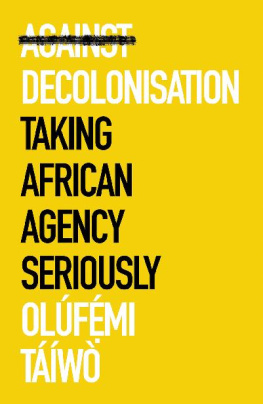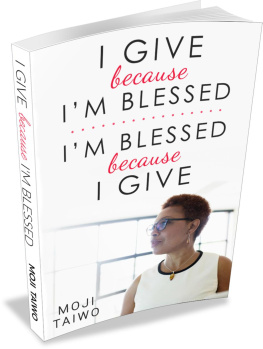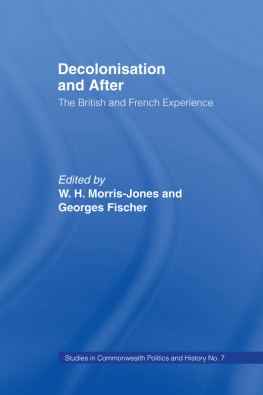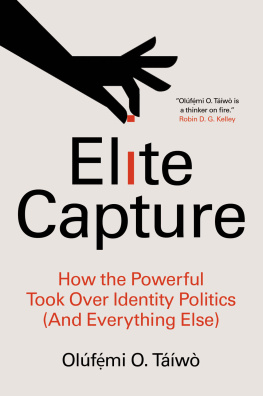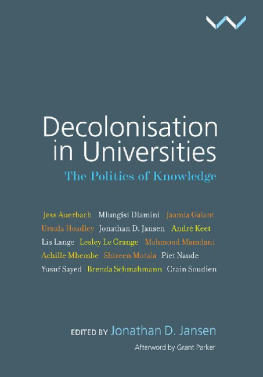Against Decolonisation launches a trench war. Its flaming arrows hit all, sparing no axiom of reflex decolonisation. This is a

(come-down-let-us-slug-it-out) critique in its most consequential form. If you are not provoked by its argument, you sabe nothing .
Adlk

Humanities Distinguished Professor,
Ohio State University
With characteristic cogency, lucidity and audacity, Tw shows that decolonisation has become an idea promoting indiscriminate hostility to forms of thought and practice wrongly tarred with malign colonial auspices. The ironic result is a rhetoric that gives short shrift to African agency. Its time to drop the erroneous conflations and recognise our right to inventive appropriation of the human commons.
Ato Sekyi-Otu, Emeritus Professor of Social and Political Thought,
York University, Toronto, and author of
Left Universalism, Africacentric Essays
Tw has written an indispensable book. To sloganise for cultural and ideological decolonisation is to deny history and agency to Africa. He makes his point through a thorough analysis of politics, economics and debates around language and philosophy.
Gayatri Chakravorty Spivak, Columbia University, author of
A Critique of Postcolonial Reason
A bracing and much-needed riposte to contemporary efforts to decolonise culture, language and politics in the Global South. Elegantly demonstrating the ignorance and violence of such aims, Tw inaugurates a new way of thinking about the persistence of empire as one of the great intellectual and political themes of our times.
Faisal Devji, Director of the Asian Studies Centre, University of Oxford
This is a book whose time has come. Basing his arguments principally on philosophy and language, Tw demonstrates how decolonisers reject as inauthentically African the works of even the most gifted and influential African scholars, thinkers and writers. Consistently cogent, commonsensical, powerful and wise, this book will not be the last word on decolonisationbut it is close to it.
Biodun Jeyifo, Professor of African and African American Studies and of
Comparative Literature, Harvard University
A highly important and deeply argued book. Tw asks us not to succumb to the simplistic siren song of the word decolonisation. A vague word, an easy trope does not help to create the modern African with complicated agency amidst complex historical and twenty-first-century demands.
Stephen Chan OBE, SOAS University of
London, author of African Political Thought
With immense brio and a generous dose of common sense, Tw exposes the weaknesses of an over-extended notion of decolonisation and offers a convincing alternative. This highly readable, engaging and challenging book is a must for everyone interested in modern Africa.
Dame Karin Barber, Emeritus Professor of African Cultural
Anthropology, University of Birmingham
AGAINST DECOLONISATION
African Arguments is a series of short books about contemporary Africa and the critical issues and debates surrounding the continent. The books are scholarly and engaged, substantive and topical. They focus on questions of justice, rights and citizenship; politics, protests and revolutions; the environment, land, oil and other resources; health and disease; economy: growth, aid, taxation, debt and capital flight; and both Africas international relations and country case studies.
Managing Editor , Stephanie Kitchen
Series editors
Adam Branch
Alex de Waal
Alcinda Honwana
Ebenezer Obadare
Carlos Oya
Nicholas Westcott
Against Decolonisation
Taking African Agency Seriously
HURST & COMPANY, LONDON
Published in collaboration with the International African Institute.
First published in the United Kingdom in 2022 by
C. Hurst & Co. (Publishers) Ltd.,
New Wing, Somerset House, Strand, London, WC2R 1LA
Copyright

Tw, 2022
All rights reserved.
The right of

Tw to be identified as the author of this publication is asserted by him in accordance with the Copyright, Designs and Patents Act, 1988.
Distributed in the United States, Canada and Latin America by
Oxford University Press, 198 Madison Avenue, New York, NY 10016,
United States of America.
A Cataloguing-in-Publication data record for this book is available from the British Library.
ISBN: 9781787386921
This book is printed using paper from registered sustainable and managed sources.
www.hurstpublishers.com
In loving memory
of
Tejumola Olaniyan
Friend, brother, interlocutor, collaborator, leader, benefactor, in-law, and
just an embodiment of decent humanity.
I will never stop missing you. Rest well.
CONTENTS
ACKNOWLEDGEMENTS
After the initial mix of emotions towards the lockdown necessitated by the Covid-19 pandemic in 2020 passed, I resolved to pound my frustrations out on the blank page. I could not have adopted a better and more productive stance towards this historical contingency in light of what has come out of it. This book is one of the products of this lockdown and my reaction to it. Simultaneously, having access to many interlocutors who willingly took my long calls, consented to reading bits and whole pieces of the manuscript, patiently hearing me out on those numerous occasions when ranting took the place of sedate expressions, and, on the whole, never refrained from checking my rhetorical excesses, even unreasoning enthusiasm, ultimately made all the difference in the production of this work. I can never repay their many kindnesses, but I remain forever grateful to them for being my friends and interlocutors.
I would like to be very clear. In a very real sense, this is Ebenezer Obadares book. It was he who, in a series of phone calls after the original essay that inspired this work was published, first called my attention to the possibility that there might be a book lurking there. More than that, the structure that emerged from our conversation forms the division of the book as it stands. I have recounted this here to demonstrate the many ways in which the business of knowledge production always involves, or even requires, conversations, disagreements, honesty and, most importantly, respect, all geared to ensuring that friends never let friends advertise their stupidity to an uncaring, sometimes unkind, world.
I am blessed to have Zeyad El Nabolsy, an Africana graduate student like no other who, it was my good fortune, got assigned to me as my research assistant at the time when I was accelerating research to expand the original material. As I have told him and other associates, the principal reason this book materialised so quickly owes a whole lot to his diligence and brilliance in aiding my research with his astute summaries of materials and, especially in our weekly meetings, his reflections, commentaries, criticisms and, finally, meticulous documentation of the work. He has been more of a junior colleague than a student.
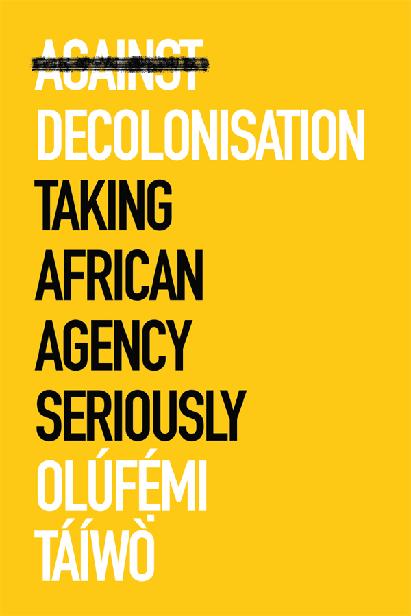
 (come-down-let-us-slug-it-out) critique in its most consequential form. If you are not provoked by its argument, you sabe nothing .
(come-down-let-us-slug-it-out) critique in its most consequential form. If you are not provoked by its argument, you sabe nothing . Humanities Distinguished Professor,
Humanities Distinguished Professor,



 Tw, 2022
Tw, 2022 Tw to be identified as the author of this publication is asserted by him in accordance with the Copyright, Designs and Patents Act, 1988.
Tw to be identified as the author of this publication is asserted by him in accordance with the Copyright, Designs and Patents Act, 1988.
